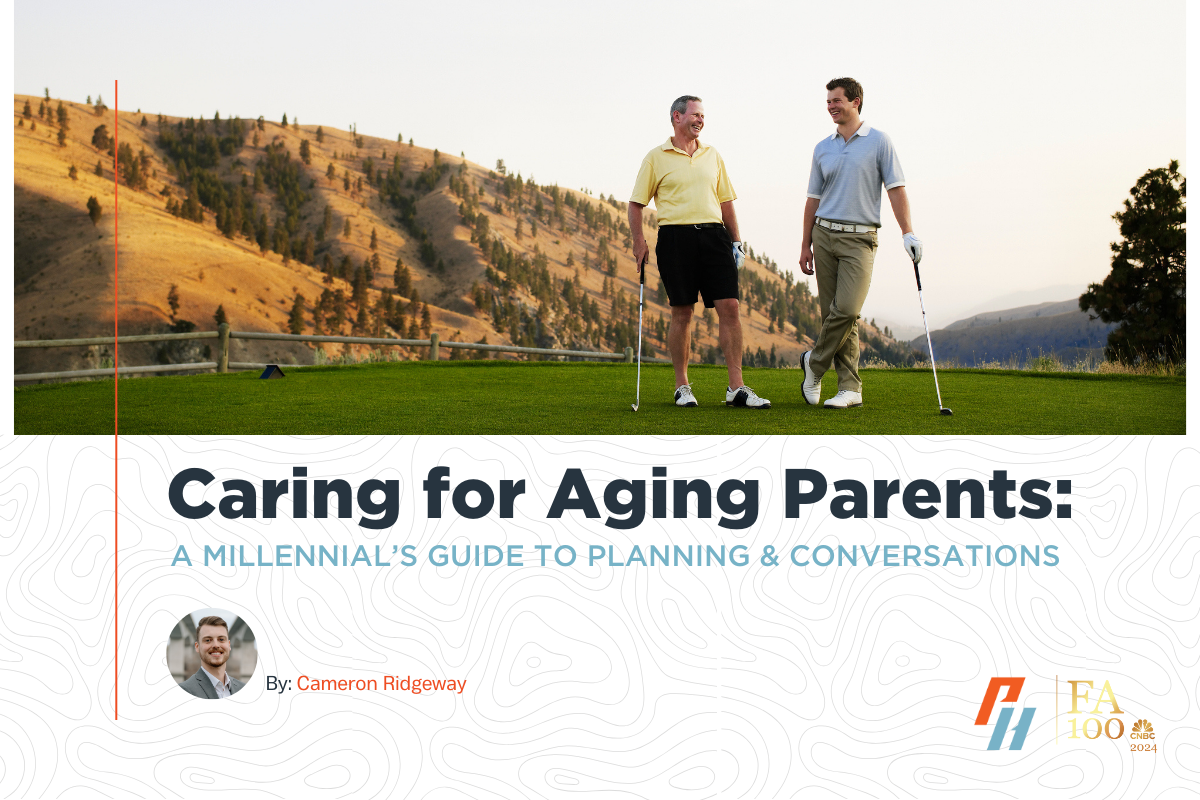Caring for Aging Parents: A Millennial’s Guide to Planning & Conversations

Thanks to healthier lifestyles and advances in modern medicine, the worldwide population over age 65 is growing. In the past decade, the number of Americans aged 65 and older has increased by 38% and is projected to reach 82 million by 2050. As our nation ages, many millennials are stepping into a new and complex role—caring for aging parents while managing their own careers, families, and financial responsibilities.1,2
For many, one of the most difficult conversations to have involves discussing long-term care and financial planning with a parent. The shift in roles can be challenging, and emotions often prevent important discussions from happening. However, having these conversations early can make a significant difference in ensuring your loved ones receive the best care while protecting your financial well-being.
Key Considerations for Millennials Caring for Aging Parents
1. Cover the Basics
Knowing ahead of time what information you need to gather can help keep the conversation on track. Here’s a checklist to get started:
- Primary physician and specialists
- Current medications and supplements
- Allergies to medications
- Health insurance details (including Medicare and supplemental plans)
It’s also essential to locate key legal and financial documents3, such as:
- Medicare and insurance information
- Durable power of attorney for healthcare
- Will, living will, trusts, and estate documents
2. Be Thorough & Proactive
The earlier you can collect critical information, the more prepared you’ll be when the time comes to make decisions. Keep in mind that while planning tools like checklists can help, this conversation may also bring up deep emotions for your parent. The transition from provider to dependent can be difficult for them, and past family dynamics may resurface. Approach these discussions with patience, empathy, and a clear goal of gathering necessary information.
3. Keep the Lines of Communication Open
This conversation is not a one-time event. Think of it as an ongoing dialogue that evolves over time. Involving siblings or other close family members in these discussions can also be beneficial. While one sibling may take the lead in caregiving, open communication ensures that everyone is aligned and that responsibilities are shared in a way that makes sense for your family.
4. Recognize the Signs & Don’t Procrastinate
How do you know when a parent might need more help? Here are a few indicators that additional care may soon be necessary:
- Noticeable weight fluctuations
- Forgetting to take medication
- New or worsening health concerns
- Increased isolation or withdrawal from social activities
Delaying these conversations can make decision-making more stressful in a crisis. Instead of waiting for an emergency, take small steps to integrate these discussions naturally into family conversations.
5. Balance Caregiving with Your Own Financial & Personal Goals
As millennials, many of us are juggling careers, homeownership, student debt, and raising young children. Adding caregiving responsibilities into the mix can feel overwhelming. Consider working with a financial advisor to explore options for long-term care planning, estate considerations, and financial strategies that align with both your parents’ and your own financial goals.
Final Thoughts
Caring for aging parents while managing your own financial and personal responsibilities isn’t easy—especially for millennials who are navigating some of life’s biggest transitions. However, proactive planning and open communication can make this journey smoother for everyone involved.
If you’re facing these challenges and need guidance on financial planning, long-term care, or estate strategies, let’s start the conversation. Reach out via email or call (509) 735-0484 today—I’d love to help!
1. WashingtonPost.com, February 14, 2023
2. PRB.org, January 9, 2024
3. Note: Power of attorney laws can vary from state to state. An estate strategy that includes trusts may involve a complex web of tax rules and regulations. Consider working with a knowledgeable estate management professional before implementing such strategies.
The information in this material is not intended as tax or legal advice. It may not be used for the purpose of avoiding any federal tax penalties. Please consult a professional for specific information regarding your individual situation.

